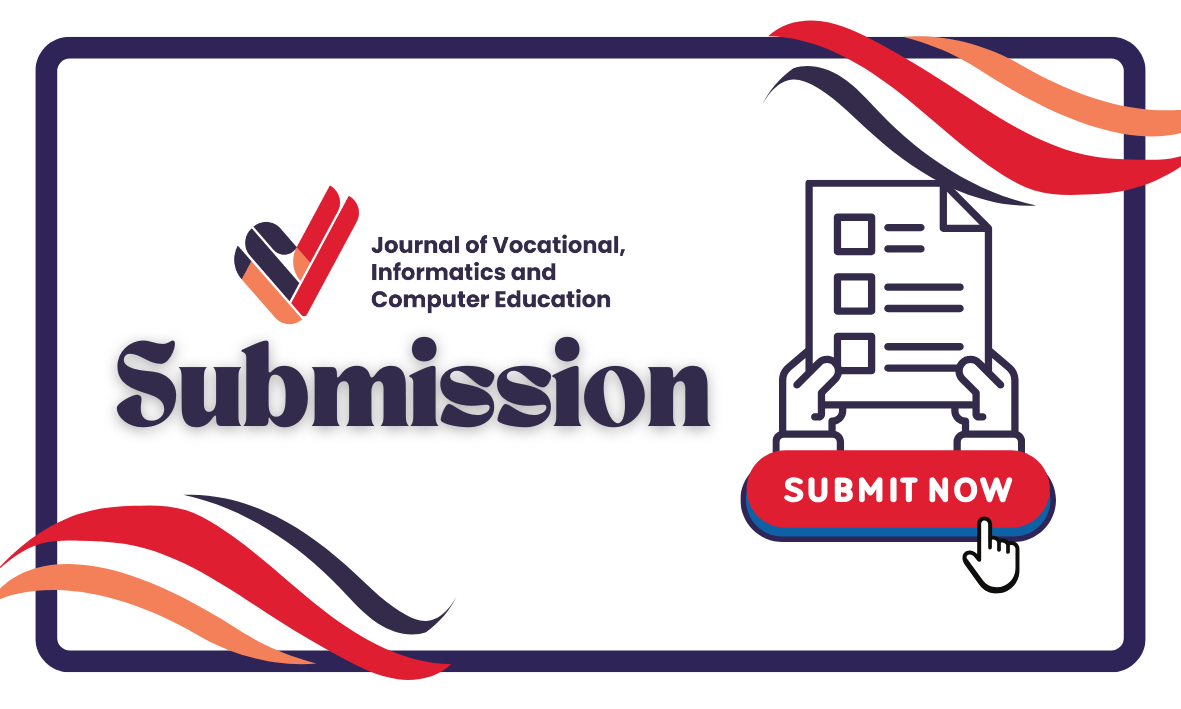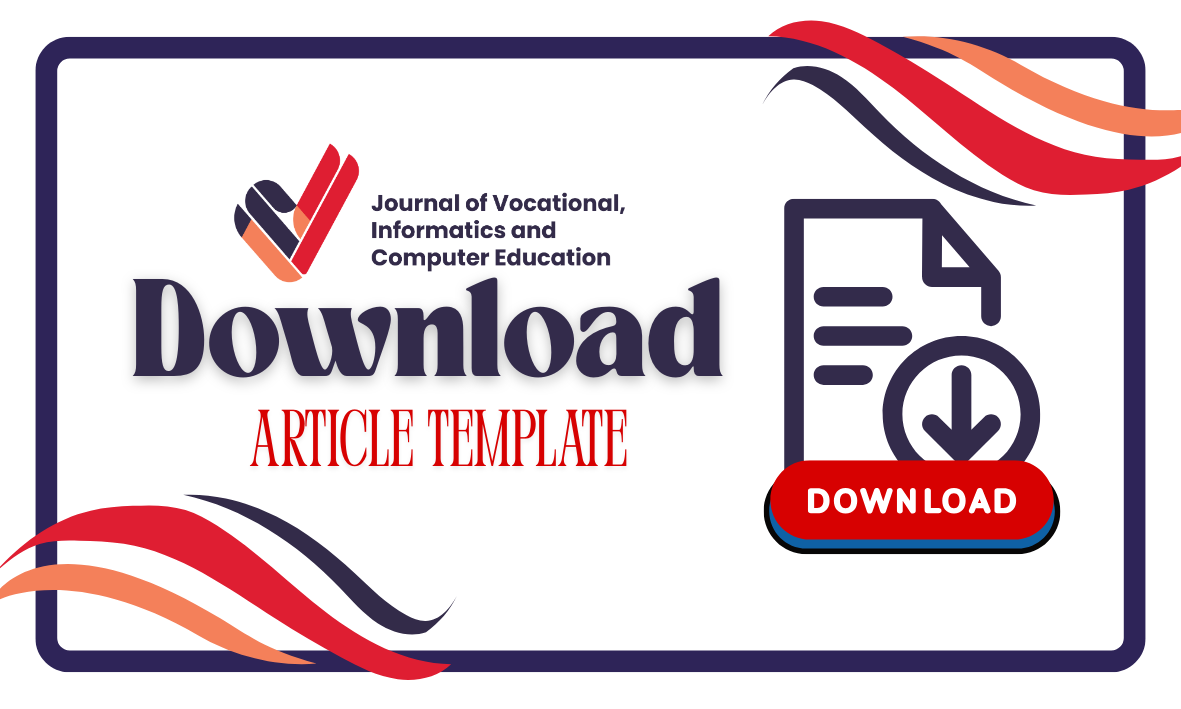Optimalisasi Strategi Bisnis E-Commerce Berbasis Model Integratif TAM-TTF: Analisis Penerimaan dan Kesesuaian Teknologi
DOI:
https://doi.org/10.61220/mx0mv460Keywords:
E-commerce, Penerimaan Teknologi, TAMAbstract
The development of technology in recent years has been very rapid, one of the results is the development of a buying and selling transaction system known as e-Commerce. Although it provides more benefits compared to traditional shopping methods, the development of online shopping in Indonesia has experienced various obstacles, including the low public awareness of using online shopping websites as a means of making buying and selling transactions and various other obstacles. This study will use a combination model between the TAM model and the task-technology fit (TTF) model that has been modified according to online shopping problems. The TTF model aims to measure the ability of information technology to support the completion of a task. The combination model will be analyzed using the Structural Equation Modeling (SEM) method. From the results of data processing using AMOS 6.0 software, it was found that the latent variable perceived ease of use did not affect the acceptance of online shopping technology. In addition, the results also show that the latent variables that significantly influence the actual use of online shopping technology are the latent variable perceived usefulness which influences the latent variable actual use by 1.095 and the latent variable task-technology fit which influences the latent variable actual use by 1.1653.
Downloads
References
[1] Z. Chen, "Exploring the application scenarios and issues facing Metaverse technology in education," Interactive Learning Environments, vol. 32, pp. 1975-1987, 2022, doi: 10.1080/10494820.2022.2133148.
[2] B. Kye, N. Han, E. Kim, Y. Park, and S. Jo, "Educational applications of metaverse: possibilities and limitations," Journal of Educational Evaluation for Health Professions, vol. 18, 2021, doi: 10.3352/jeehp.2021.18.32.
[3] M. Wang, H. Yu, Z. Bell, and X. Chu, "Constructing an Edu-Metaverse ecosystem: A new and innovative framework," IEEE Transactions on Learning Technologies, vol. 15, pp. 685-696, 2022, doi: 10.1109/TLT.2022.3210828.
[4] S. Jagatheesaperumal, K. Ahmad, A. Al-Fuqaha, and J. Qadir, "Advancing education through extended reality and Internet of Everything enabled metaverses: Applications, challenges, and open issues," ArXiv, abs/2207.01512, 2022, doi: 10.48550/arXiv.2207.01512.
[5] A. Samala, U., T., A. Bojić, Y. Indarta, D. Tsoy, M. Denden, N. Taş, and I. Dewi, "Metaverse technologies in education: A systematic literature review using PRISMA," Int. J. Emerg. Technol. Learn., vol. 18, pp. 231-252, 2023, doi: 10.3991/ijet.v18i05.35501.
[6] W. Suharmawan, “Pemanfaatan Chat GPT Dalam Dunia Pendidikan,” Education Journal : Journal Educational Research and Development, vol. 7, no. 2, pp. 158–166, Aug. 2023, doi: 10.31537/ej.v7i2.1248.
[7] A. Setiawan and U. K. Luthfiyani, “Penggunaan ChatGPT Untuk Pendidikan di Era Education 4.0: Usulan Inovasi Meningkatkan Keterampilan Menulis,” Jurnal PETISI, vol. 04, no. 01, 2023, [Online]. Available: https://chat.openai.com.
[8] P. Haryo and A. Makmur, "The use of Metaverse in providing interactive learning experiences in schools," Perspektif Ilmu Pendidikan, 2024, doi: 10.21009/pip.381.2.
[9] Y. Kurniawan, N. Liberty, S. Caesar, C. Winardi, and N. Anwar, "Study of Metaverse prospect, implications and sustainability based on perception of university students in Indonesia," Journal of Computer Science, 2023, pp. 1561-1579, doi: 10.3844/jcssp.2023.1561.1579.
[10] T. Santika and S. Noviaristanti, "Exploratory study of Metaverse in business in Indonesia using scenario planning approach (Metaverse case study in Digital Business & Technology Division PT Telkom Indonesia)," International Journal of Current Science Research and Review, 2024, doi: 10.47191/ijcsrr/v7-i9-62.
[11] S. Panuntun and Y. Sipayung, "Transforming education in Indonesian higher education through the use of Metaverse to improve learning quality," International Journal of Multidisciplinary Research and Analysis, 2023, doi: 10.47191/ijmra/v6-i7-20.
[12] D. Pangestu and A. Rahmi, "Metaverse: Media pembelajaran di era Society 5.0 untuk meningkatkan kualitas pendidikan Indonesia," Journal of Pedagogy and Online Learning, 2022, doi: 10.24036/jpol.v1i2.17.
[13] W. Sun, L. Yan, X. [Missing Author], P. Ren, D. Yin, and Z. Ren, "Is ChatGPT good at search? Investigating large language models as re-ranking agent," ArXiv, abs/2304.09542, 2023, doi: 10.48550/arXiv.2304.09542.
[14] Z. Liu, X. Wang, and L. Li, "ChatGPT-assisted information retrieval: A comparative study of user behavior in academic information retrieval," Proceedings of the 24th ACM/IEEE Joint Conference on Digital Libraries, 2024, doi: 10.1145/3677389.3702595
[15] N. Farikasari, P. Prijana, and A. Rohman, "Hubungan kebutuhan informasi sehari-hari dengan penggunaan OpenAI Chat GPT," Info Bibliotheca: Jurnal Perpustakaan dan Ilmu Informasi, vol. 6, no. 1, 2024, doi: 10.24036/ib.v6i1.504.
[16] J. W. Creswell, “Research Design: Qualitative, Quantitative, and Mixed Methods Approaches,” 2014.
[17] S. Sugiyono, “Metode penelitian & pengembangan research and development,” Bdg. Alf., 2015.
[18] M. AlAfnan, S. Dishari, M. Jovic, and K. Lomidze, "ChatGPT as an educational tool: Opportunities, challenges, and recommendations for communication, business writing, and composition courses," Journal of Artificial Intelligence and Technology, 2023, doi: 10.37965/jait.2023.0184.
[19] N. Malik, "Interacting with ChatGPT: Impact on students and teaching-learning," Sigma Journal of Engineering and Natural Sciences – Sigma Mühendislik ve Fen Bilimleri Dergisi, 2023, doi: 10.14744/sigma.2023.00147.
[20] F. Karataş, F. Abedi, F. Gunyel, D. Karadeniz, and Y. Kuzgun, "Incorporating AI in foreign language education: An investigation into ChatGPT's effect on foreign language learners," Educ. Inf. Technol., vol. 29, pp. 19343-19366, 2024, doi: 10.1007/s10639-024-12574-6.
[21] S. Bin-Nashwan, M. Sadallah, and M. Bouteraa, "Use of ChatGPT in academia: Academic integrity hangs in the balance," Technology in Society, 2023, doi: 10.1016/j.techsoc.2023.102370.
[22] A. Strzelecki, "Students’ acceptance of ChatGPT in higher education: An extended unified theory of acceptance and use of technology," Innovative Higher Education, 2023, doi: 10.1007/s10755-023-09686-1.
[23] I. Chaudhry, S. Sarwary, G. Refae, and H. Chabchoub, "Time to revisit existing student’s performance evaluation approach in higher education sector in a new era of ChatGPT — A case study," Cogent Education, vol. 10, 2023, doi: 10.1080/2331186X.2023.2210461.
[24] M. Farrokhnia, S. Banihashem, O. Noroozi, and A. Wals, "A SWOT analysis of ChatGPT: Implications for educational practice and research," Innovations in Education and Teaching International, vol. 61, pp. 460-474, 2023, doi: 10.1080/14703297.2023.2195846.
[25] S. Rawas, "ChatGPT: Empowering lifelong learning in the digital age of higher education," Educ. Inf. Technol., vol. 29, pp. 6895-6908, 2023, doi: 10.1007/s10639-023-12114-8.
Downloads
Published
Issue
Section
License

This work is licensed under a Creative Commons Attribution-ShareAlike 4.0 International License.




















 Email : voice@lontaradigitech.com
Email : voice@lontaradigitech.com
